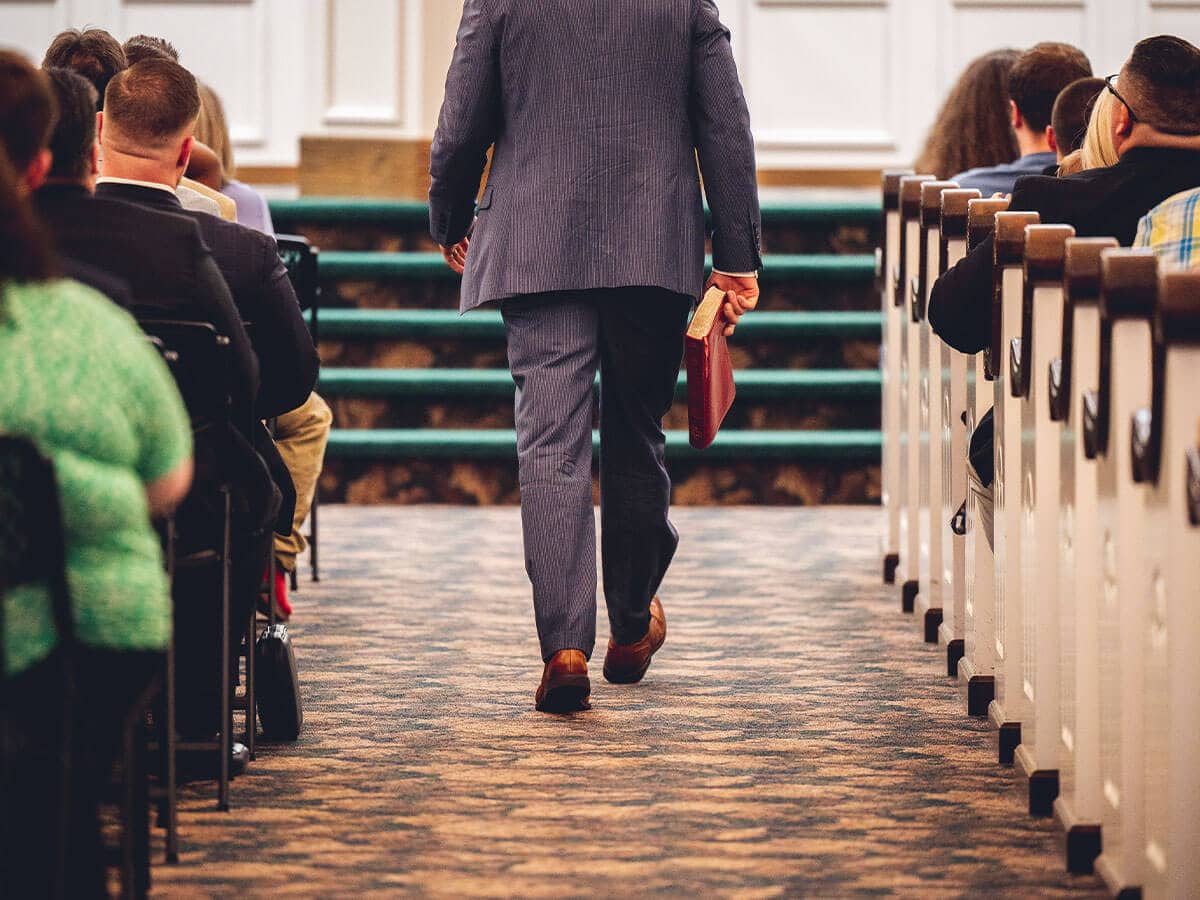
shutterstock.com
Experiencing spiritual doubts can be frightening. Severe spiritual doubts can lead you to question absolutely everything you ever knew, and they can leave you feeling lost in a world that feels increasingly unfriendly. After all, if you suddenly doubt that God exists, then what is the point of anything? If there is no afterlife, what are you living for? Why do your actions matter? Why do morals matter? While they are less likely to leave you spiraling in confusion and fear, even mild spiritual doubts are uncomfortable.
Spiritual doubts are uncomfortable because they force you to question things that you have always been taught are not meant to be questioned. Faith is meant to be just that–taken on faith. So suddenly wanting to know why, what, how or when can leave you feeling like you are overstepping yourself. You are a mere mortal, a mere human. Who are you to question God? In addition to feeling like you are pitting yourself against God, spiritual doubts can also make you feel like you are turning your back on your family or friends. They are not, after all, suffering from spiritual doubts. They are perfectly comfortable in their faith, like you should be. So, how can you continue to relate to them or their devout faith?As much as you may feel like an outsider or feel guilty for having spiritual doubts, there is actually nothing wrong with experiencing periods of doubt. Spiritual doubts do not mean that you are leaving your faith behind. Instead, they are a way for you to deepen and strengthen your faith. Without spiritual doubts you would be unlikely to truly question anything about your faith. You might ask small questions, but you would likely be satisfied with platitudes or simple, surface answers. People do not normally push for a serious answer unless there is an actual question. “I wonder” or “I’m curious” do not always have the necessary power to push you to truly investigate what you believe. “What if I’m wrong,” however, can give a person an enormous push to prove themselves right. “What if there is no God,” then, becomes the means by which a person proves to themselves, and possibly to others, that there most certainly is a God. The person who doubted, then, becomes a deeper believer and has managed to assemble evidence in such a way to potentially be able to help others who are doubting see that there is a God.
The sort of investigation that spiritual doubts create may also cause you to uncover areas of your faith that you had never heard of before. In an effort to dispel one doubt you may find something else that requires your attention. This new detail, then, can become the focus of later investigation. For example, you may have questions about whether watching pornography is or is not a sin. As you are digging through the Bible looking for verses that could help you answer your questions, you might stumble across another verse that interests or confuses you, a reference to the Pharisees, perhaps. You wonder who the Pharisees were in Biblical times and why they were so antagonistic. Once you have dealt with the pornography question, you return to your curiosity about the Pharisees. You dig deeper into the history of Jerusalem during the Roman period and learn about the different traditions that competed for followers. In doing so, you gain a better understanding of the context that Jesus was preaching in. This context then lets you find deeper meaning in other verses or clarify something else that may have confused you in the past.
Spiritual doubts also help you truly come to own your faith. If you never doubt or never question, you will never truly understand why you believe what you believe. You will just be believing what you were told without ever truly asking yourself why these beliefs matter. The doubts you face do not have to be large. Small doubts about minor doctrinal details can spur you on to do deeper investigation. It is the answers you find during this investigation that let you really come to own your faith.
Uncomfortable as they are, spiritual doubts also give you the ability to defend your faith from others. If you have never really questioned your own faith, you will never be able to completely defend it. When someone questions why you believe what you believe, you will not have good answers for them. Your answers and defenses will seem surface and trite to the person asking the questions. They will feel that you are following blindly and that you never so much as bothered to consider the deeper meanings or ramifications of what you believe. This may seem like a minor detail, but if you cannot even defend your own faith from questions, how can you convince anyone else to follow it? Even if you do not set out to convert people, one bad experience is enough to put someone who was considering conversion off for life. Because you did not question your faith or ever experience doubts, the person speaking to you may assume that there is no place in your faith for a person who struggles with spiritual doubts or that all believers must follow blindly. Most people do not want to join a religion with either of those reputations.
Wrestling with spiritual doubts is uncomfortable, unpleasant and can be very frightening. It can seem like both a betrayal of everything you ever believed and everything you were ever taught. Spiritual doubts are not a catastrophe regardless of how terrible they may seem at the moment. Spiritual doubts are a chance to grow in your faith and to learn about your beliefs. They are a chance to truly explore your faith so that you can come back stronger than ever and say, “I believe this and here is why.” Faith without any doubts is blind, but faith that survived doubts is like a tree that survived a hurricane. It sinks in its roots and stands tall through even the worst of storms.

